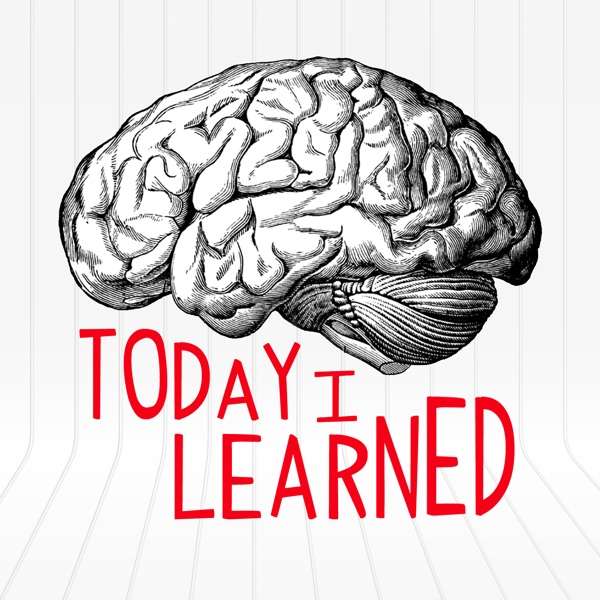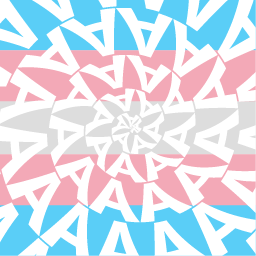- 34 Posts
- 21 Comments

 2·1 year ago
2·1 year agoOf course I have! I know pretty much everything about them, can’t miss Tron Legacy!

 13·1 year ago
13·1 year agoIt was started in 2017 and is being updated daily.
According to people who have read a great portion of it, the writing is god awful and does not improve the longer you read.
From what I can tell from Jamesdean5842’s profile, he is quite proud of The Loud House Revamped calling it his “prized work” (https://www.fanfiction.net/u/5625800/Jamesdean5842).
The first TVtropes link I put has a list of the “episodes” that have been documented by readers so far. Each chapter seems to be its own episode of sorts.
The plot itself is not very interesting, the only thing noteworthy about the plot is all the bizarre and absurd things that occur in it, but it is not fun to read. You can see examples of the strange things that happen in the story on TVtropes.
As far as I can tell, there are no fanfics of this particular work, but there is a lot of fan fiction of the Loud House.

 7·1 year ago
7·1 year agoThe Loud House Revamped passed Subspace Emissary a while ago though I cannot find when that happened exactly.
Yall just don’t get it, it’s natural lubrication.
I am trying to be as respectful as possible here, but saying that authoritarianism doesn’t exist is an absolutely insane take. Obviously the CIA did a lot to try and stop communism, we all know that. And why wouldn’t a state want to suppress dissent, do you think that all “communist” regimes were these perfect, do nothing wrong utopias? Of course a state wants to suppress dissent, it gives them more control over their people, Governments are greedy, even if they claim to be communist. I don’t think the extent of mass surveillance, forced propaganda, censorship, and imprisonment could be justified by "stopping a foreign entity. Here are some examples of the things authoritarian “communist” regimes did to supposedly “fight foreign powers”.
Soviet Union (USSR): Under the leadership of Joseph Stalin, the Soviet Union carried out numerous purges and suppressions of dissent. The Great Purge in the late 1930s resulted in the execution or imprisonment of millions of people, including political opponents, intellectuals, military officers, and ordinary citizens accused of disloyalty or counter-revolutionary activities. The state employed the secret police, censorship, forced labor camps (Gulags), and surveillance to maintain control and suppress dissent.
People’s Republic of China: The Chinese Communist Party (CCP) has a long history of suppressing dissent. During the Cultural Revolution (1966-1976), Mao Zedong mobilized student groups known as the Red Guards to target intellectuals, artists, and political opponents. Many individuals were persecuted, imprisoned, or killed. In more recent times, the Chinese government has tightened control over the media, the internet, and social media platforms, censoring content, monitoring online activities, and imprisoning activists and dissidents who challenge the party’s authority.
Cuba: The Cuban government under Fidel Castro and his successors has been known for suppressing dissent. The regime has restricted freedom of speech, assembly, and the press, controlling the media and limiting access to information. Independent journalists, activists, and political opponents have been subject to harassment, imprisonment, and surveillance. The government also tightly controls access to the internet and social media platforms.
North Korea: The totalitarian regime in North Korea, led by the Kim family, has implemented strict controls on information and dissent. The state maintains a pervasive surveillance system and enforces ideological conformity through propaganda, censorship, and forced indoctrination. Any form of dissent or criticism of the regime is severely punished, with individuals and even entire families sent to political prison camps.
East Germany: During the existence of the German Democratic Republic (GDR), the ruling Socialist Unity Party suppressed dissent through surveillance, censorship, and repression. The Ministry for State Security, commonly known as the Stasi, maintained a vast network of informants and spies to monitor citizens’ activities and control dissent. The government restricted travel, controlled the media, and imprisoned those who challenged the state’s authority.
Most suppression of dissent was done to citizens of the state. If you think that any of this can be justified by “fighting foreign powers”, you are absolutely delusional.

 15·1 year ago
15·1 year agoIf anyone is wondering what site I am doing this on it’s called “gab”, it’s filled with white sepremicists and nazis, don’t go on there if you are faint of heart

 2·1 year ago
2·1 year agoAs long as it unsettles you in some way, it counts.
You can also do the same thing with your foreskin :)
Soviet Union under Joseph Stalin: Stalin’s rule was characterized by forced collectivization, which resulted in widespread famine and the death of millions of people, particularly during the Ukrainian Holodomor. Stalin’s purges led to the imprisonment, execution, or exile of millions, including members of the Communist Party, military officials, intellectuals, and perceived political opponents.
The Great Leap Forward in China: Under Mao Zedong’s leadership, the Great Leap Forward aimed to rapidly transform China’s economy and society. However, the policies implemented, such as forced collectivization and the backyard steel furnaces, resulted in a disastrous famine, leading to the deaths of an estimated 20 to 45 million people between 1958 and 1962.
Cultural Revolution in China: The Cultural Revolution, initiated by Mao Zedong, aimed to reassert his authority and eliminate perceived enemies within the Communist Party and society. The movement led to widespread political persecution, purges, and violence, resulting in millions of deaths, as well as the destruction of cultural heritage, academic institutions, and economic disruption.
Khmer Rouge in Cambodia: The Khmer Rouge, led by Pol Pot, ruled Cambodia from 1975 to 1979. During their regime, they implemented radical agrarian communism, forcing urban dwellers into rural work camps and carrying out mass executions, torture, and forced labor. It is estimated that between 1.7 to 2.2 million people died as a result of execution, starvation, and disease.
North Korea under Kim Il-sung and Kim Jong-il: The oppressive regime in North Korea has been associated with widespread human rights abuses, political repression, forced labor camps, and the suppression of dissent. The regime’s policies have resulted in severe food shortages and famine, leading to the deaths of hundreds of thousands of people.
I only like raddle more because it’s not filled to the brim with tankies. This place can feel like its full of them
196 is the best thing that happened to this site

 34·1 year ago
34·1 year agoAllegedly left-wing bootlickers. Historically, they are more comparable to fascists than anything leftist.

 4·1 year ago
4·1 year agoAuthoritarians are klansmen
Mutual aide is not really the issue with tankies, the problem is the authoritarianism. Mutual aide can be very effective when done properly. For example, anarchists tend to answer the question of “leeches” by giving them the resources to self-actualize, and if the “leech” does not care to do that, they can be kicked out of an anarchist community.
For idolizing the soviet union and the people’s republic of china, who have done some very evil things. Tankies always try to undermine the sins of authoritarian regimes. They keep trying to instate authoritarian regimes knowing full well that they have killed so many historically.
If you want truly based leftism, try anarchism.
“giant hog” I’ve always wanted a fat piggy for a pet :3
Love this image, thank you











For real